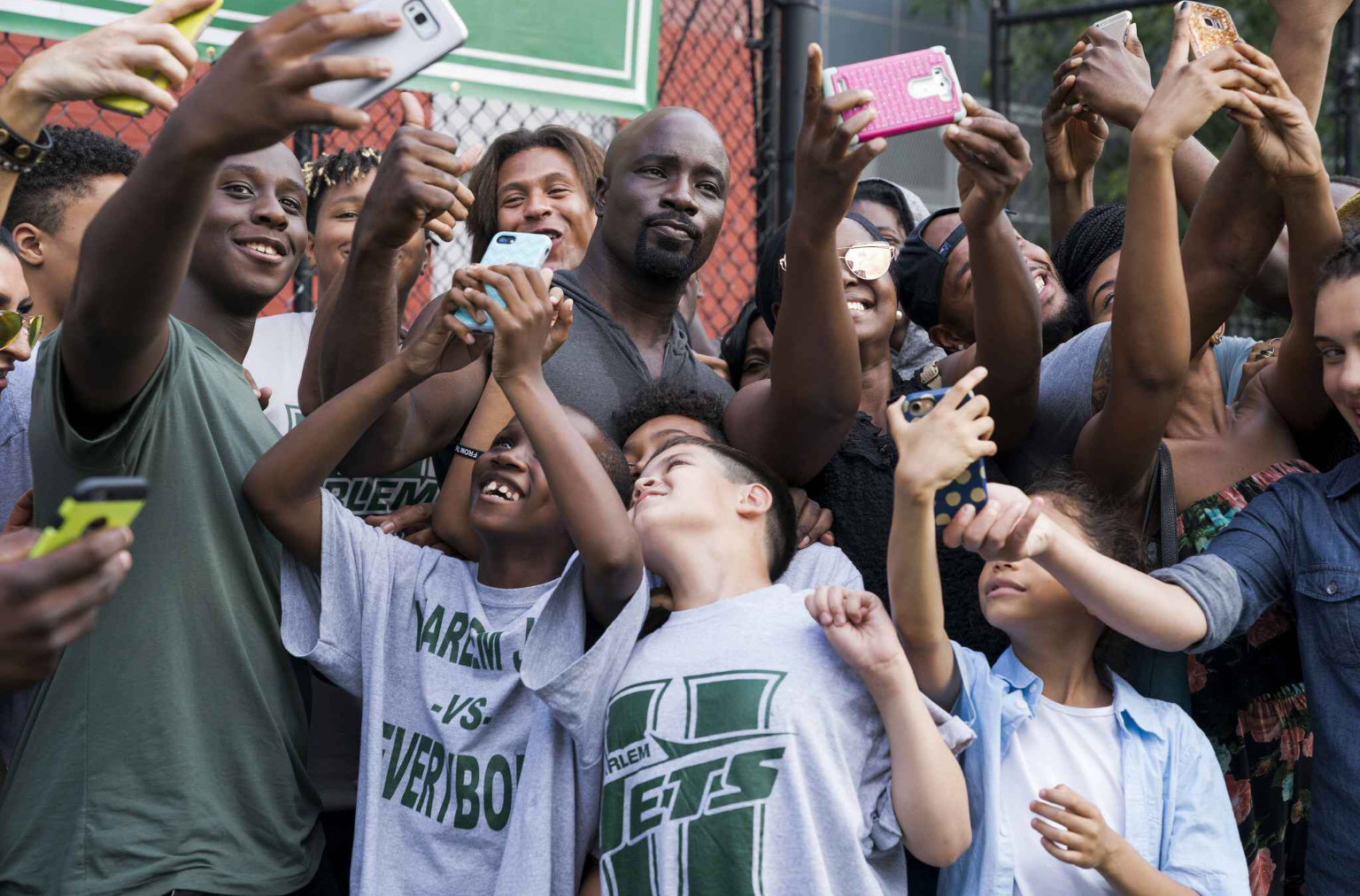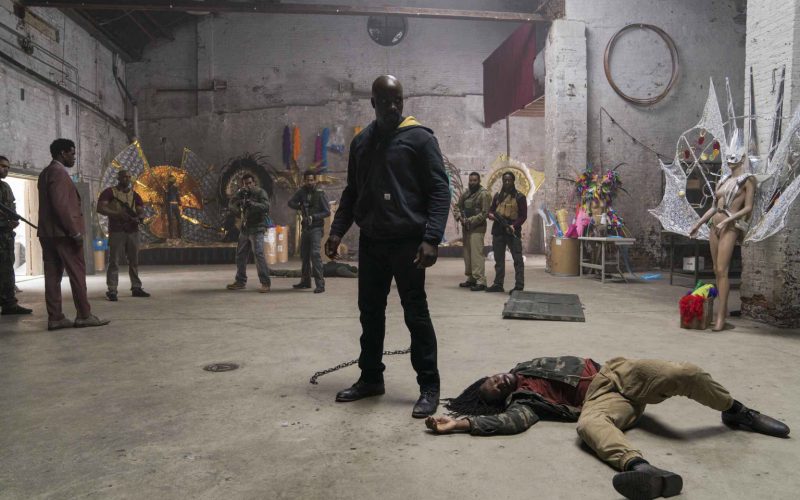Luke Cage – Season 2 (2018).
Marvel’s film properties have continued to go from strength to strength for the past decade but it’s fair to say that it’s TV endeavours have struggled to achieve the same consistency of quality and therefore, success.
Whilst many of Netflix’s Marvel shows have experienced early praise, continuing productions such as Jessica Jones have failed to hit the heights of it’s initial season with a less well received second outing. Couple this with the almost universal disdain that the first season of Iron Fist received, along with the disappointment many expressed in the superhero team-up, The Defenders, and you’re left with only the premier series of The Punisher gaining any real acclaim of late.
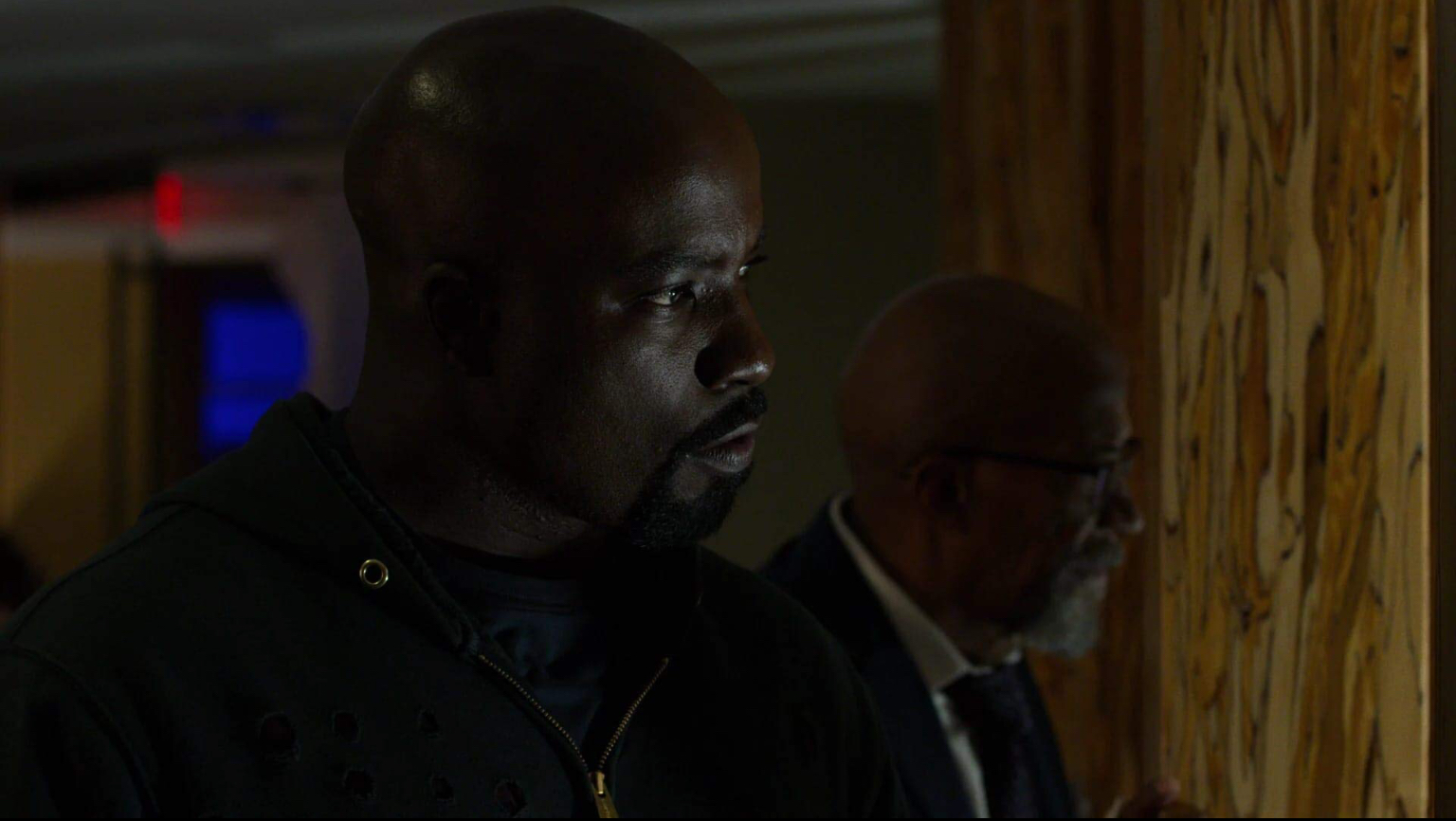
So it’s almost with a sigh of relief that the second season of Luke Cage falls squarely onto the the better end of the Marvel/Netflix scale in terms of quality. I say almost, as whilst this second season will get a mainly positive appraisal here, it does take its time to get going. With a 13 episode run, one can’t help but think that a ten episode slate may have been a more prudent proposal, as there’s a distinctly bloated feeling to the early half of this second season’s storyline, especially during the first few episodes.
In fact, on a recent episode of the Film ‘89 podcast, I even went as far as saying that after viewing the first few episodes I felt my desire to continue to watch the rest of this season had waned and much like the second season of Jessica Jones, I may even find myself bailing out completely. Usually with the new release of a Netflix Marvel property, I find myself struggling not to binge watch episodes and have to force myself to stick to my self imposed maximum of two episodes per day viewing schedule, (trust me, try to enforce this discipline and you’ll find any box set binge viewing much more enjoyable).
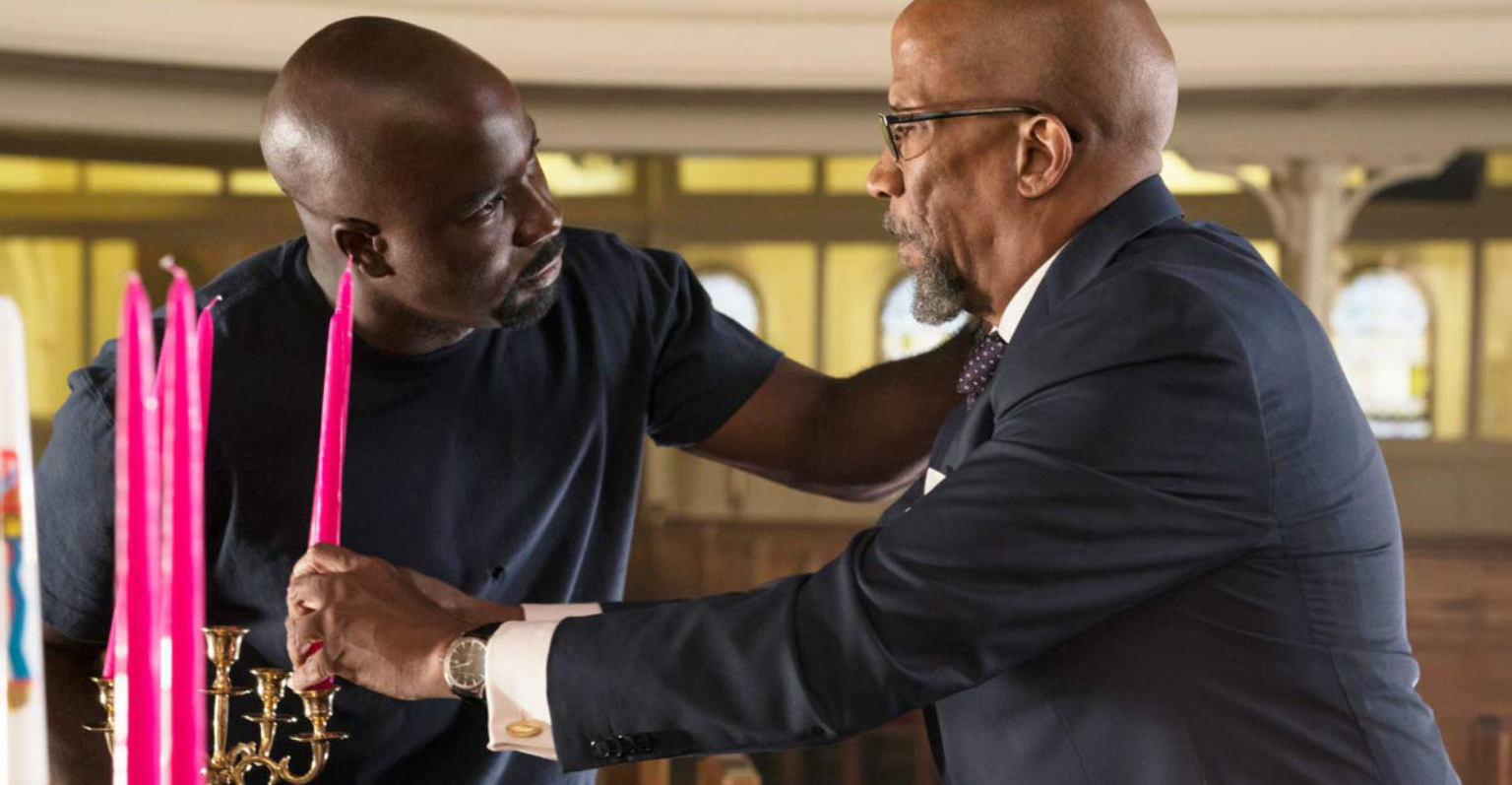
During the first season runs of the Netflix Marvel shows Daredevil, Jessica Jones and Luke Cage, I found myself virtually chomping at the bit to watch the next episode but this second season left me initially unimpressed. However, a slow burn can sometimes lead to a roaring flame and this is very much the case here.
Season two picks up with the aftermath of the events of the first season and centres once again, on the continued struggle for control of the streets of Harlem. With only minor references to the Defenders storyline (apart from two guest appearances that I’ll come to later), the story continues to focus on Luke’s neighbourhood and introduces a new antagonist in the form of The Bushmaster (Mustafa Skakir), a Jamaican Yardie gangster, who arrives in town intent on taking back his family’s honour and business wealth from last season’s eventual villain, Mariah Dillard (Alfre Woodard) who herself, succeeded her cousin and then crime boss, Cottonmouth (Mahershala Ali) by nefarious means, to become the underworld kingpin of Harlem, as well as the owner of the Harlem’s Paradise nightclub.
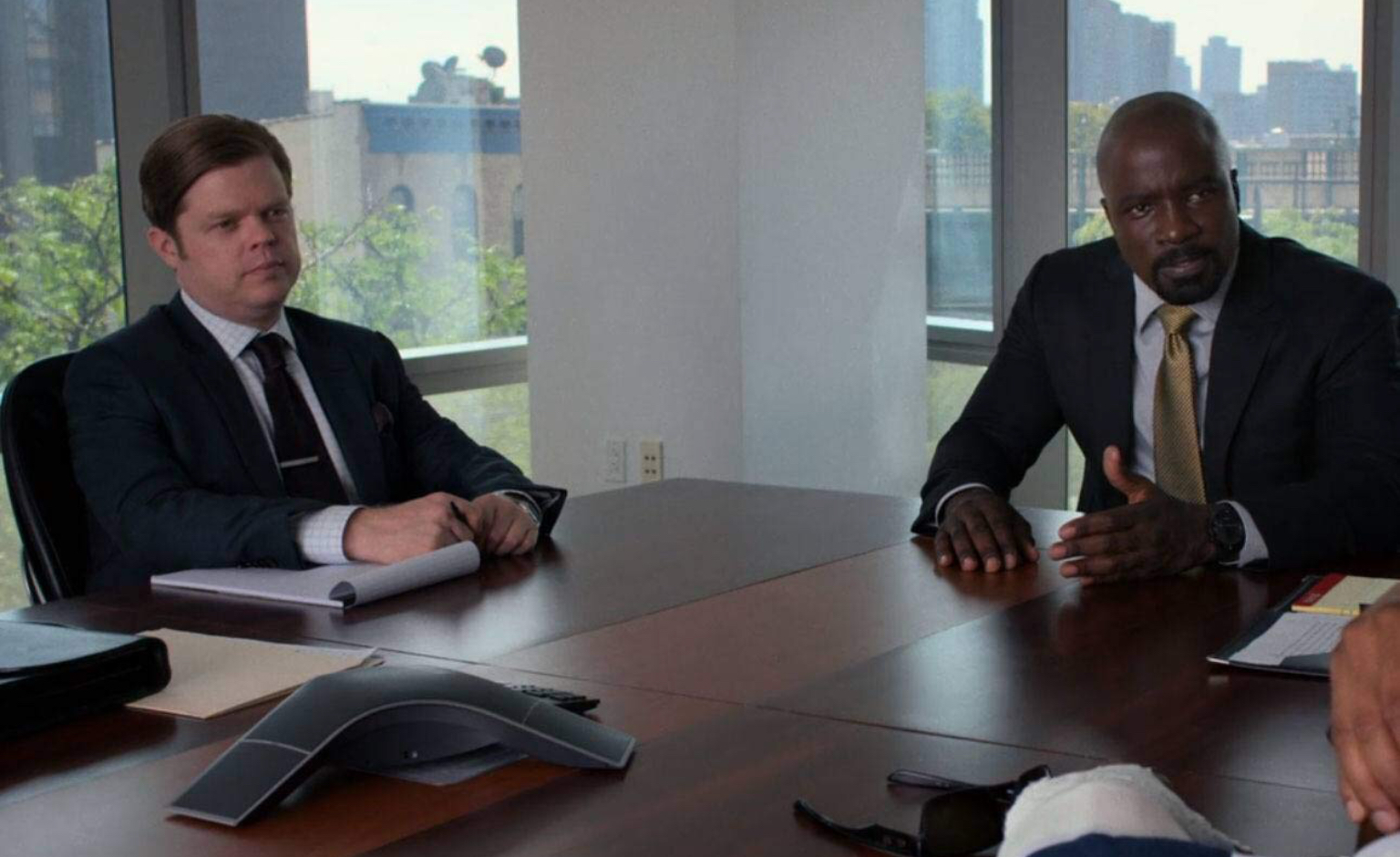
Both Bushmaster and Dillard are again an example of how these Netflix shows break the often easily hung-on criticism of Marvel not giving us fully fleshed out villains (although the recent MCU bad guys also prove this observation to be flawed). Both of their back stories are well executed and explained through flashbacks providing them with depth and meaning to their respective motivations, in line with both Daredevil’s Kingpin (Vincent D’Onofrio) & Jessica Jones’ Kilgrave (David Tennant).
Luke Cage is once again superbly portrayed by Luke Colter who simply owns the character to the point of making his performance seem almost effortless. His appearance and swagger taking command of every scene he appears in with an understated nuance that silently captivates the viewer. As is the case with many of the key players within the MCU, it’s hard to imagine any other actor in this role. He quite simply is Luke Cage.
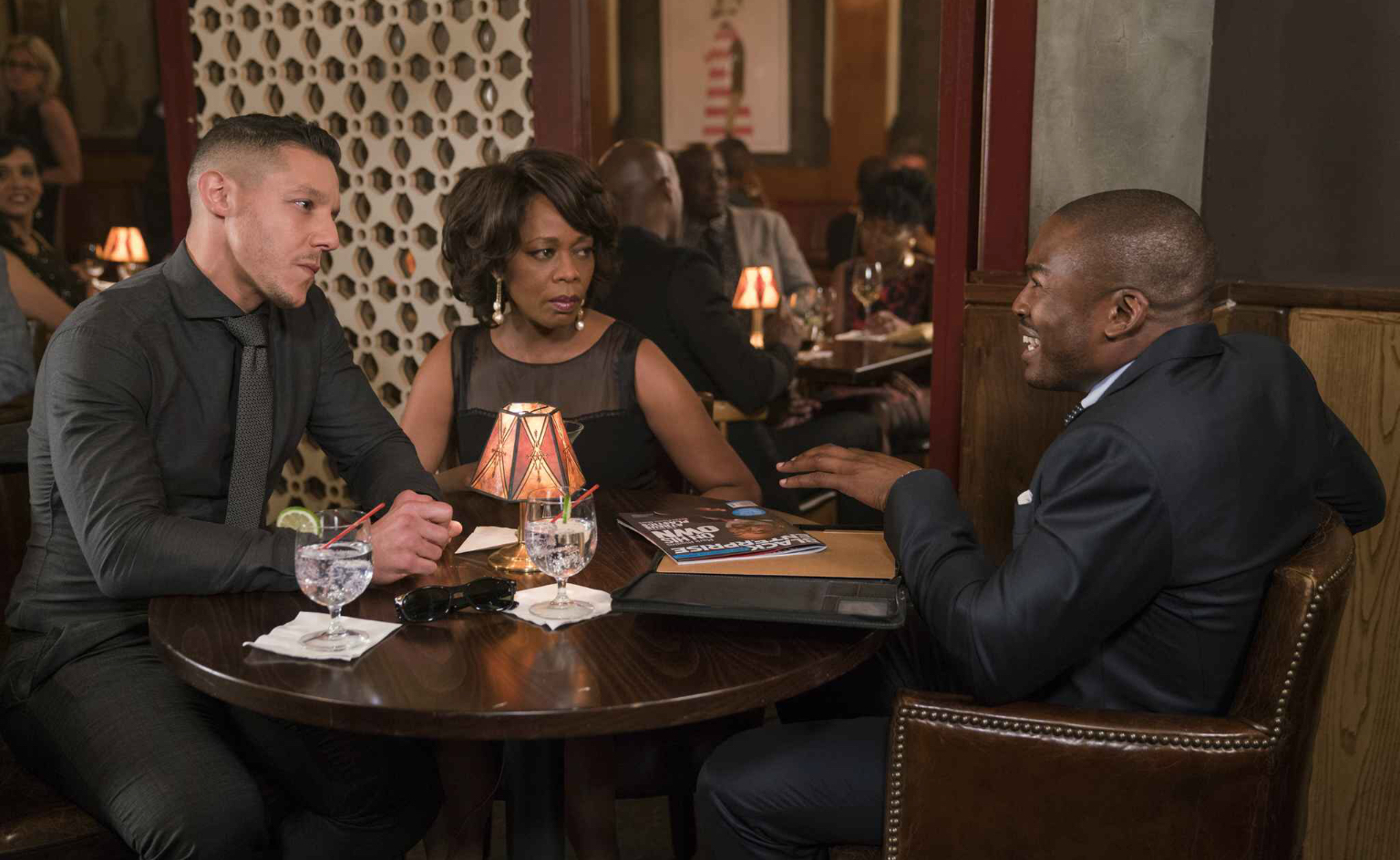
Other returning characters such as Claire Temple (the ever brilliant Rosario Dawson) and Misty Knight (Simone Missick) are perhaps a little underused in the seasons first half, with Temple being given little to do and Knight seemingly resigning from the Police force in several of the earlier episodes (again, perhaps highlighting the needless padding out of this season’s runtime). Missick’s character does however come good as the season progresses and her struggle to combat losing a limb during The Defenders is ably assisted by the return of Iron Fist’s Colleen Wing (Jessica Henwick). Talking of Iron Fist, Danny Rand himself (Finn Jones), shows up to help out Luke in episode 10 and surprisingly even manages to somehow undo the previous damage of his earlier incarnation with a more well rounded depiction of the character. Although the story gathers the required momentum by the middle episodes, it’s really during its final stanza that season two really garners kudos, with a power struggle filled finale that benefits from an overt nod to The Godfather, with one scene in particular being virtually a shot for shot ‘homage’. There are also shades of Goodfellas within the dynamic, as various characters manoeuvre their way into more favourable positions by feasting on the demise of the counterparts.

Although I’m unashamed in my admiration for quality comic book to screen adaptations, I’m perhaps most filled with admiration when the formula is incorporated within an established genre, which moves the story in a different direction than an everyday viewer would expect. I remarked to my fellow Film ‘89 alumni, Skye Wingfield, during our first viewing of Christopher Nolan’s The Dark Knight a decade ago, that I’d actually forgotten that I was watching a Batman film and instead had become engrossed in an engaging crime drama and the ending to this season invoked similar feelings. This time with a crime dynasty-esque feeling taking over the story arc, which inevitably leaves the lead character in a quandary as to where his future will take him.
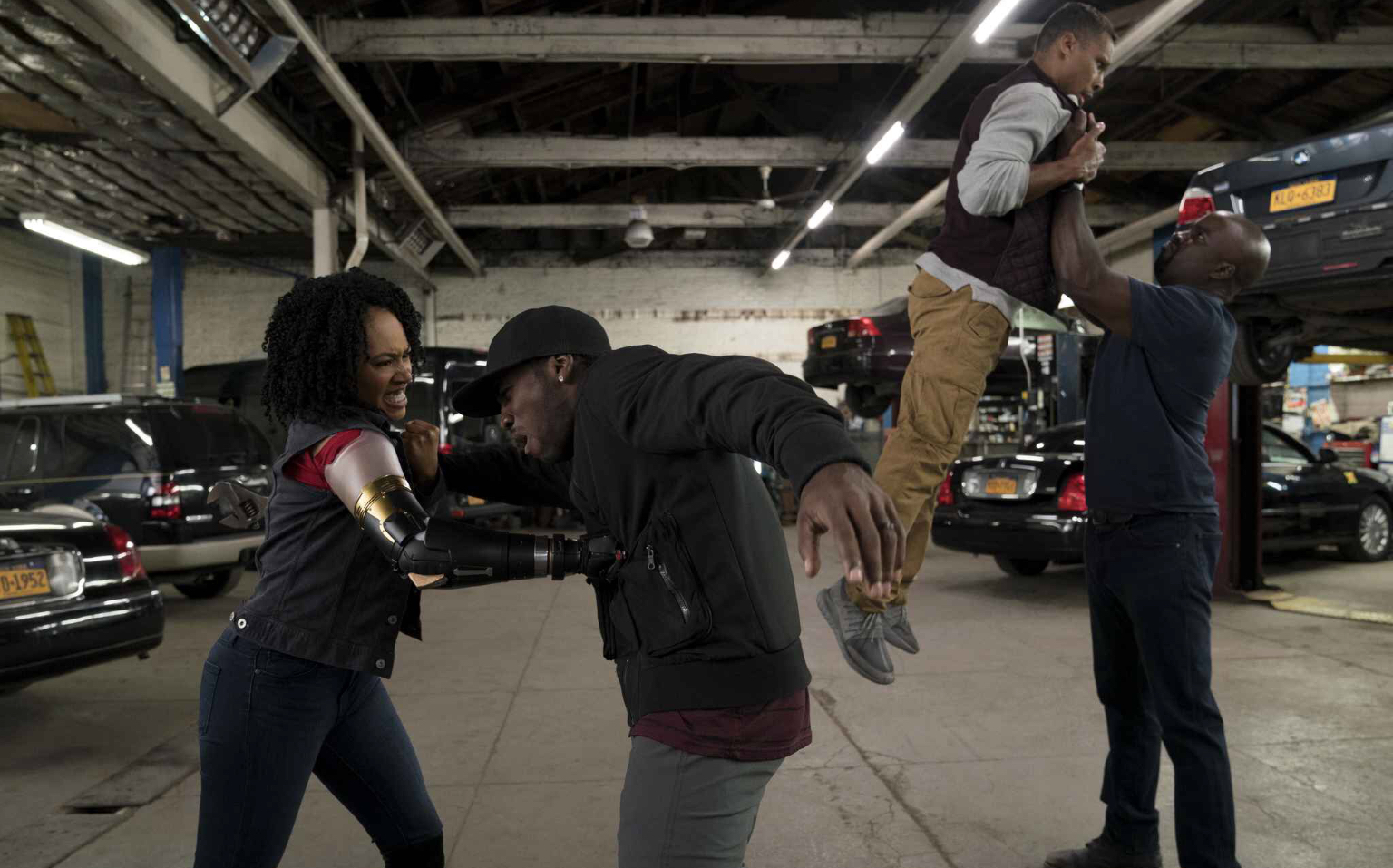
As with most Mafia/Crime Dynasty stories, a strong ensemble cast is required and this season’s progression of the character Herman “Shades” Alvarez (Theo Rossi) and the introduction of Dillard’s estranged daughter Tilda Johnson (Gabrielle Johnson) provide interesting sidebars throughout, that eventually lead to a valuable collision of plot threads that strengthens the overall narrative. Sticking with the Mob theme, the soundtrack, whilst conversely different to what you’d necessarily get from a Scorsese film, is similarly brilliant. As with the first season – which had arguably one of the greatest soundtracks to a television series ever – we are again presented with a mixture of both old and new school tunes that fit easily and effectively into the scenes their supporting.
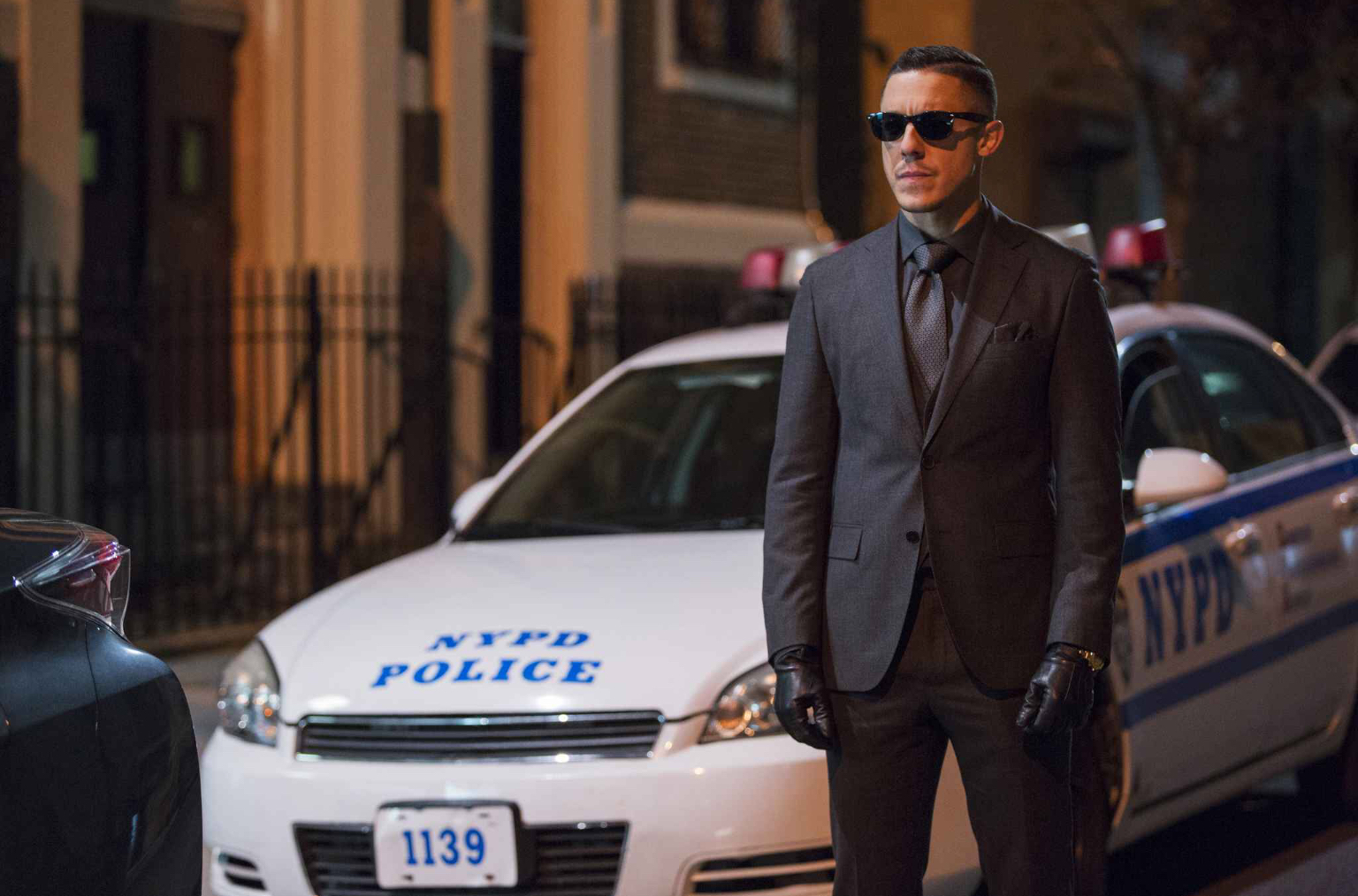
In conclusion, this second season has left this particular Marvel property in quite a unique position in that it could quite easily become somewhat removed from any of its counterparts and successfully thrive on its own. Where Black Panther rightly proved that a black-centric comic book movie can be a huge success (both critically and financially) within the comic book based movie arm of Marvel’s ever growing empire, Luke Cage got its hefty booted foot in the door first and, as it was in its first season, it remains a lovingly crafted celebration of black culture, music and raw talent, both in terms of acting and the production itself, and has now truly solidified its status as a beacon of light for Marvel’s less fantastical arena of street level super heroes.
Film ‘89 Verdict – 8/10
Luke Cage Season 2 is available now on Netflix.
